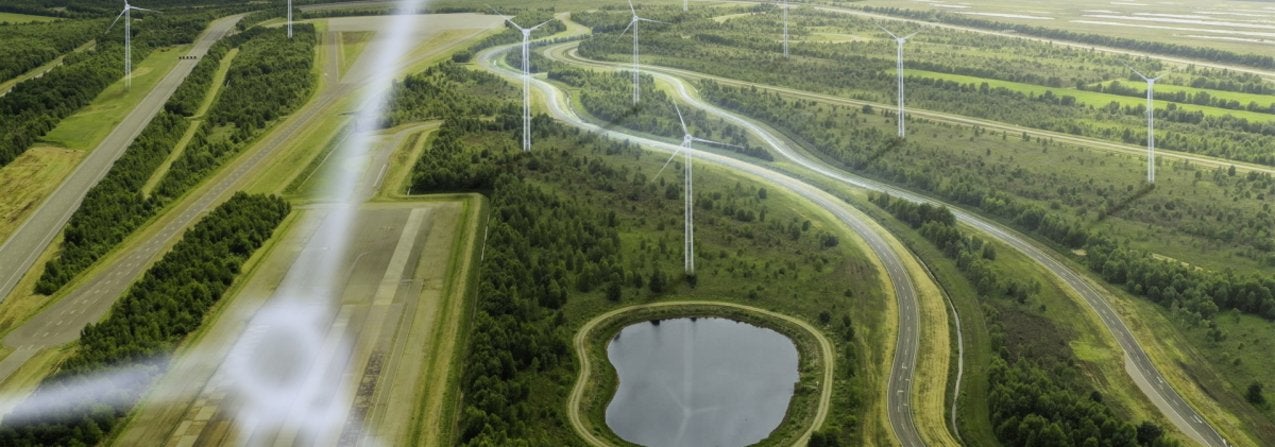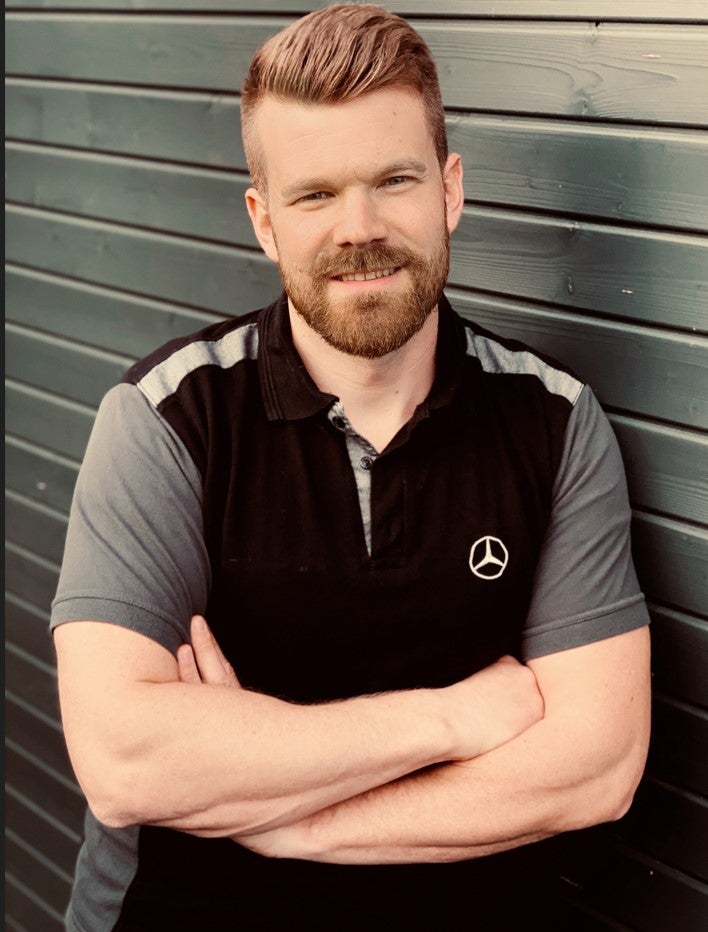
OEMs across the globe are setting targets to reach carbon-neutrality and net zero status. This has seen many brands changing and altering their sourcing, production and product development methods – all part of working towards a greener future.

Discover B2B Marketing That Performs
Combine business intelligence and editorial excellence to reach engaged professionals across 36 leading media platforms.
Mercedes-Benz aims to achieve the target of all new vehicles being net carbon-neutral along the entire value chain and over the vehicles’ entire life-cycle by the year 2039.
To reach this goal the company realised that energy-efficiency and resource-saving production facilities need to be present. The company has announced plans for the installation of a wind farm at the company’s test track in Papenburg, North Germany.
The planned wind farm, made up of approximately 20 wind turbines, will have the capacity to produce more than 120 megawatts, sufficient to cover around 20% of the annual electricity requirements of Mercedes-Benz Group AG in Germany.
We spoke to Robin Sievers, head of energy supply and management at Mercedes-Benz, to learn more about this new wind-powered project.

Just Auto (JA): Could you give me a little bit of background on your role?
Robin Sievers (RS): Since October 2021 I have been working as head of energy supply and management at Mercedes-Benz. My team is responsible for the energy supply of our Mercedes-Benz production sites. This, of course, includes the supply of electricity as well as the heat supply.
We have a clear target picture for energy efficiency as well as for renewable energies in our supply portfolio. We are continuously ramping up additional renewable capacities on- and off-site. In a nutshell, my team is ensuring the sustainable and secure energy supply of our production plants.
Why was UKA – the supplier – selected to install the turbines?
Some months ago, we launched a tender for this project, which was met with great interest among several project developers. With UKA we found the ideal partner for the realisation of a wind farm at our test track in Papenburg.
UKA is one of the largest developers for wind projects in Germany with a lot of experience. We are very pleased to be able to work together with the UKA team on such an important project.
How much power is estimated to be produced and what will it be used for?
Our Papenburg test track will see approximately 20 wind turbines of the newest generation and will have a capacity of more than 120 megawatts. This is sufficient to cover around 20% of Mercedes-Benz’s annual electricity requirements in Germany.
Overall, we expect to generate enough power equivalent to powering more than 100,000 households – all produced by these turbines.
Overall, we expect to generate enough power equivalent to powering more than 100,000 households – all produced by these turbines.
What are some of the key benefits of this project?
Mercedes-Benz wants all new vehicles to be net carbon-neutral along the entire value chain and over the vehicles’ entire life cycle by a target date of 2039.
To achieve this, the company needs energy-efficient and resource-saving production facilities as well. The supply of renewable energy is one of the key pillars for reaching this goal – not least through increased on-site generation capacities.
That’s why we are focusing on the expansion of photovoltaic systems at our own sites and on the expansion of our energy portfolio to include wind power from onshore and offshore wind farms.
With our wind farm project in Papenburg, we have created a win-win situation combining our testing business with renewable energy generation. We are proud to be making an important contribution to the expansion of wind energy in Germany.
What is the current status of the project?
Our teams are currently preparing for the necessary regulatory approval procedures. Subject to the approvals, construction of the wind turbines could begin early next year, and the wind farm could become operational in 2026.
The announced program of solar systems and wind farms will help Mercedes-Benz to secure more than 50% of its future total electricity requirements in Germany. There is definitely more to come.
What about other recent renewable energy initiatives?
In the offshore sector, Mercedes-Benz recently concluded another Power Purchase Agreement with Iberdrola – one of the global market leaders in the renewable energy sector – for the supply of electricity from the Windanker wind farm in the Baltic Sea.
The announced program of solar systems and wind farms will help Mercedes-Benz to secure more than 50% of its future total electricity requirements in Germany. There is definitely more to come.






